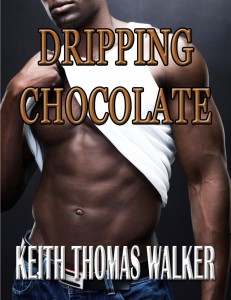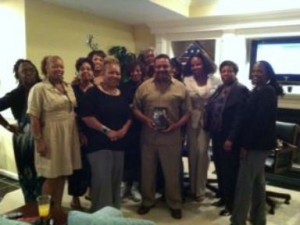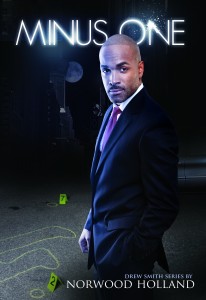A Conversation with Brian Boger
January 17, 2014
When I first picked up Southern Fate I thought because the author was an attorney it was just another legal thriller, but the opening didn’t neatly fit into the thriller formula. I read on thinking perhaps it was a mystery but the first body didn’t show up until Chapter 9. Obviously not a mystery, so I read on and suddenly it swept me up and blew me away like a hurricane. The genre was literary and quintessentially Southern with elements of both mystery and thriller. The novel centers on the inner story of a South Carolina attorney Frank Rhodes and the journey to his fate and fortune.
Introduced as a rather pathetic character Frank Rhodes is an accident prone klutz and a mediocre lawyer whose only passion is hunting and fishing. The only thing making him worthy of attention is his extreme good looks. Suddenly things change for Frank in a big way when he lands a windfall judgment instantly propelling him into the national spotlight. On the road to money and fame he soon learns the bad news his wife is leaving him for another women. And things get complicated quickly when a serial arsonists plaguing the city with one of the first victims being a member of Frank’s non-traditional family. Meanwhile his brother teaches him an unorthodox method on how to get develop rhythm to thereby overcome his clumsiness, a lifelong affliction.
There is much going on in Southern Fate with numerous subplots. The book is full unexpected plot twists and Boger takes the reader into areas past traditional Southern writers feared to tread. He incorporates several popular motifs commonly found in Southern literature including sense of family and sense of place. However we see some newer motifs developing. For example the non-traditional family and same sex relationships. At a young age Frank’s father was killed by a burglar. His mother and another single windowed mother with a son of similar age merged households to form a non-traditional family headed by two women. While these women are heterosexual another non-traditional family with young children taking root when Frank’s wife leaves him for her same sex lover with young children. These types of non-traditional modern family models are uncommon in traditional Southern literature but realistically capture today’s society. Lesbian relationships have rarely been openly presented in such openly fashion and again capturing the dynamics of today’s modern families.
Another traditional motif is the sense of place. Southerners are exceedingly proud of their region and as social historian Carl N. Degler once described the South as a region “where roots, place, family and tradition are the essence of identity”. All of which are apparent in Southern Fate which in this jet age moves from Columbia to Charleston, New York, the Bahamas and Costa Rica. However, make no mistake the stories beginning, middle, and end are deeply rooted in Columbia, and Boger does not spare the details of Columbia’s rich Civil War history recounting the tales of Sherman’s march. Indeed the ghost of the War against Northern Aggression and the horrors Columbia faced under Sherman conjures up a deus ex machina villain the serial arsonist. Like Bo Radley suddenly arriving on the scene and not a moment too soon.
This is perhaps the books one major shortcoming. We never get to know the villain or his motivations only that he has targeted women belonging to the Daughters of the Confederacy in the name of Sherman. There are no red herrings or clues to suggest anything about the character and his motivations. The villain emerges in the end and disappears in a puff of fire and flames. As a reader in the end I was left frustrated with too many questions as was Frank. Perhaps this was the author’s intent.
As social issues and politics evolve with time so does a society’s literature, and Southern Fate stands as an exemplary work of modern Southern literature. The author is a practicing attorney, the father of three. He and his wife live in Columbia where he studied law. He also holds a degree in English from the University of Virginia. Brian Boger pushes the boundaries and thereby expands the conventional motifs placing him among the vanguard of new Southern writers.
I would dare suggest being on the future lookout for Brian Boger. He expects to release his second title in 2014. When asked about the project, he says “the working title is Champagne Friday. It’s another legal thriller type book with some (surprise) literary themes like loss, redemption, vindication, and young men leaving their Bacchanalian Rite of Passage behind them for good women. It’s a humdinger of a book developing strong female characters appealing to a broader female audience. The women are cool.”
If the women are anything like the men of Southern Fate it should indeed be a humdinger. Southern Fate is an incredibly delightful read, rich with local color and chocked with quirky characters. Boger’s voice and style are a cross between John Gresham and John Brendt. The state capital Columbia might want to get behind their adopted favorite son because Southern Fate could very well do for Columbia what Midnight In the Garden of Good Evil did for Savannah.
A review of Keith Thomas Walker’s ‘Dripping Chocolate’
December 29, 2012
 Keith Thomas Walker’s Dripping Chocolate is a romantic tale with an urban twist. The characters are not your usual upper crust lovers living fantastic lives in ideal settings coping with a complex complicated love. The characters are true to form working class single parents making it in the world. Nicole, a mother of three, works in a call center where her coworker girlfriends make up her supportive social circle. Charles Dwayne Hester is only months out of the joint taking on the challenges of an ex-con seeking employment while resisting the street’s lucrative drug hustle. Determined to go “legit” Charles is forced to rely on his money making assets, a handsome face and a well endowed muscular body. Charles is reluctantly drawn into stripping because of his desire to be a good father and the responsibility of two kids and twice the baby mama drama.
Keith Thomas Walker’s Dripping Chocolate is a romantic tale with an urban twist. The characters are not your usual upper crust lovers living fantastic lives in ideal settings coping with a complex complicated love. The characters are true to form working class single parents making it in the world. Nicole, a mother of three, works in a call center where her coworker girlfriends make up her supportive social circle. Charles Dwayne Hester is only months out of the joint taking on the challenges of an ex-con seeking employment while resisting the street’s lucrative drug hustle. Determined to go “legit” Charles is forced to rely on his money making assets, a handsome face and a well endowed muscular body. Charles is reluctantly drawn into stripping because of his desire to be a good father and the responsibility of two kids and twice the baby mama drama.
The story opens with Nicole—not without her own baby daddy drama–coming to the realization that her recent relationship with Byron isn’t working. He’s controlling and jealous and as advised by her girlfriends potentially dangerous. She breaks it off but Byron can’t seem to take go for an answer. To celebrate her 29th birthday girlfriends treat Nicole to a night out at Peeping Jane, a male strip club. Nicole shuns the idea of male strippers. Exciting and easy on the eyes she considers them undesirable and full of no class baggage.
Enters Dripping Chocolate his first night on the job stripping; learning the ropes and making plenty of money. Nicole gets a special dance and the encounter remains engrained in her memory. Shortly thereafter she bumps into Dripping Chocolate aka Charles at the Walmart while both are shopping for their respective sons. Her new perception of Dripping Chocolate as a responsible father dramatically changes Nicole’s first impression.
With cold feet she resists his overtures while considering her girlfriends’ conflicting advice. Nevertheless she dives into irresistible waters, but soon finds swimming in the budding romance a challenge. The plot thickens with heightened conflict when Charles’ stripping becomes the elephant in room.
Conflict is the key to Keith Thomas Walker’s string of successful novels. The author is a master of what literary agent Donald Maass calls micro-tension, the literary device designed to keep readers turning pages. While Dripping Chocolate is a romance it’s no fantasy dream but chocked with common real life urban struggles. Through sublime dialogue Walker’s characters jump off the page vivid and real. In great writing the plot is layered with conflicting relationships taken to dramatic heights. I highly recommend Dripping Chocolate.
You can listen to my in depth interview with the author on my blog EditorialIndependence.com.
Book clubs take on a dynamic function for independent publishers
October 23, 2012
I recently attended The Reading Divas Black Authors and Readers Rock Weekend an event bringing together writers and book clubs. As a writer I had the opportunity to introduce myself and my works to hundreds of new readers. It was also an opportunity to network with other authors and share marketing strategies.The participating clubs came from both near and afar with snappy names like Just Us, Sugar and Spice, Nooks, Books and Friends, and Body and Soul. Book clubs are no longer just readers coming together to discuss popular literature, but now take on a more dynamic function within the publishing industry. The decline of brick and mortar bookstores, offering popular book signing venues where fans met their authors, are being alternatively replaced with the intimate book club setting serving as an increasingly important marketing and distribution channel.
The weekend began with a Friday night reception and open club meeting featuring a discussion led by Karen Quiones Miller of her new book An Angry Ass Black Woman and a reading by the popular legal thriller author Pamela Samuels Young from her new novel Attorney-Client Privilege. The program was standing room only as were the four Saturday morning workshops and panel discussions which included: Is Urban Lit Really Literature, So You Wanna Write, What Impact has the Ebook had on Black Publishing, and How to Start, Improve and Get the Most Out of Your Book Club. All in fun there were raffles for attendees and a fashion contest for the best dressed club. Select clubs paraded through the banquet hall donning identifying distinctive outfits from custom tops and scarves to cable stitch sweaters.
The event highlight came when keynote speaker New York Times best selling author Mary Malone took the floor sharing her remarkable writing journey entertaining her spellbound audience with her compelling biography. Her first novel, The Upper Room was published by St. Martin’s Press in 1985. She is best known for her novel, God Don’t Like Ugly (originally published by Dafina Books in the fall of 2000), and the series revolved around the characters first introduced in this book. Her latest is God Don’t Make No Mistakes.
Pamela Samuel Young told how through a book club appearance she landed a guest spot on the The Monique Show. Many authors appreciate that one on one face time with their readers many of whom do not hold back on their criticism. The authors and guest book club members frequently expressed how valuable they found the event praising the The Reading Divas. Many are looking forwarding to next year’s event expecting it be an even bigger and better event.
TaNIsha Webb author of The Ultimate Book Club Experience and founder the Book Club University is a great source for both authors and book clubs.





